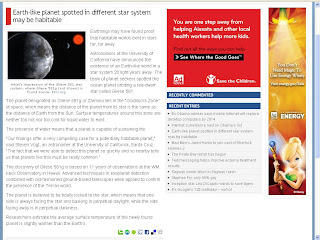"Let's have our first writing activity!" Abel's upbeat voice suddenly stirred her listless class. After several meetings, the things we learned during lectures will have its practical application.
"Pretend that this is a Press Conference." The students took out their notepads and scratch papers to jot down notes. "You will be the reporters, while I will play the role of the Press Secretary." Everyone's faces was painted with glee after they realized that they will be writing a news article for the first time.
"Just give me the lead paragraph. Make sure the important details I will mention must be present in your article."
It was in Junior College when I had my foray into hard news. Life before was full of expository and narrative shit. Word count mattered and kids used to ace one another with flowery and poetic words embedded in their essays. With hard news, we are taught to be brief and concise with our language. We ought to follow the basic pattern of every article because time is money and nobody reads news with kilometric sentences.
I remember the 4Ws and 1H. It was Abel's first lesson in class. "The challenge of a story" she said, "is how to cram the answers to the questions what, when, where, why and how in one paragraph without sounding too stuffed and heavy." She would soon introduce the different approaches in newswriting, which include a little fact-twisting to make the story more appealing to readers.
"Headlines must be sensational" She said when we covered the topic on choosing the best news banner. "It must be screaming for attention. Remember that your newspaper will be placed next to rival papers reporting the same hot story."
"You must never give away the entire piece, but instead let your readers take a peek at the slant of your article." Examples she gave include a news article about a small fire. With no casualties and only minimal damages, the headline and slant shift towards the couple who was "about to come" when their gas stove exploded.
"Finally, there are days when news are hard to come." By this time, the idea of writing our first news article was already being shaped inside our head. "Remember to sift newsworthy stories from ordinary ones. A dog biting a man is an everyday occurrence but a man biting a dog is news." Everyone chuckled at her example.
Delighted at the way she presented her ideas - including her experiences covering the police beat - Abel was hailed as one of the pillars of our department. Not only did we learn much from her lectures, we were able to hold classes at the Palace after she was handpicked by the former president for the press undersecretary job.
Her subject lasted only for two separate semesters, and then we moved on and immersed ourselves to other more sophisticated forms of newswriting. But without Abel's legacy, which I fondly recalled while writing this article for an online newspaper:
 |
| Ghostwriting Assignment. Part of the Project Raketship Campaign |
My writing style would remain stuck to weaving narratives, poetry and expository composition only.